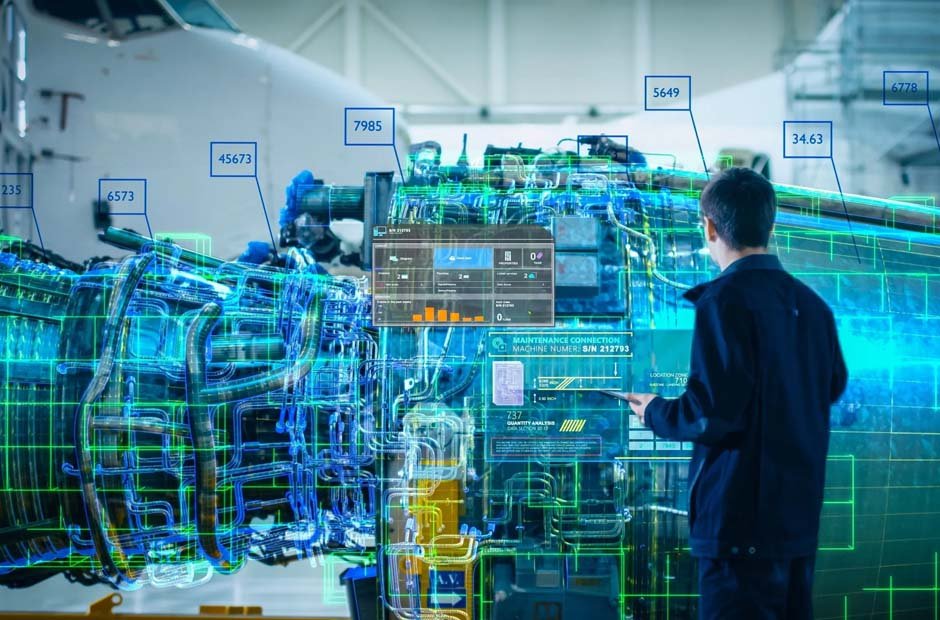The integration of Machine Learning (ML) into the manufacturing sector marks a paradigm shift toward unprecedented efficiency, quality, and innovation. As industries worldwide strive to embrace the digital revolution, machine learning stands at the forefront, offering solutions that redefine traditional manufacturing processes. Among the plethora of applications, the optimization of automation PCs and panels exemplifies the profound impact of ML in enhancing operational control and reducing downtime. However, the journey to fully harnessing ML’s potential is fraught with challenges, from data complexity to workforce adaptation.
Machine Learning in Manufacturing: The New Frontier
Machine learning, a subset of artificial intelligence (AI), involves algorithms that enable systems to learn from and make decisions based on data. In manufacturing, ML’s capabilities are being leveraged to transform operations, offering solutions that were once deemed futuristic.
Predictive Maintenance
One of the most significant applications of ML in manufacturing is predictive maintenance. By analyzing data from sensors embedded in machinery, ML algorithms can predict equipment failures before they occur, scheduling maintenance to prevent downtime. For instance, automation PCs and panels, which serve as the brains of manufacturing operations, can greatly benefit from ML. Algorithms can detect anomalies in their function, preempting failures that could lead to production stops. This ensures continuous operation and extends the lifespan of critical control equipment.
Quality Control
Machine learning also plays a pivotal role in quality control, analyzing vast amounts of data from production lines to identify defects or deviations from standards in real-time. This capability allows manufacturers to maintain high-quality standards while minimizing waste and rework. In processes where precision and control are paramount, such as those governed by automation PCs and panels, ML ensures consistent quality and operational efficiency, safeguarding brand reputation.
Supply Chain Optimization
ML algorithms optimize supply chains by forecasting demand, managing inventory levels, and identifying the most efficient delivery routes. This predictive capability enables manufacturers to swiftly respond to market changes, reducing stockouts and overproduction. The integration of ML in supply chain management exemplifies how data-driven decisions can lead to more resilient and responsive operations.
Process Optimization
Beyond maintenance and quality control, ML offers vast potential for process optimization. By analyzing production data, ML algorithms can recommend adjustments to settings on automation PCs and panels, enhancing efficiency. This optimization extends to energy consumption, where ML can identify patterns and suggest measures to reduce costs and environmental impact, aligning with sustainability goals.
Navigating the Challenges of Machine Learning in Manufacturing
Despite the transformative potential of ML in manufacturing, its adoption is not without challenges. These hurdles must be addressed to fully realize the benefits of this technology.
Data Complexity and Quality
The effectiveness of ML algorithms depends on the quality and quantity of data available. In many manufacturing environments, data may be siloed, incomplete, or of poor quality, hindering the development and accuracy of ML models. Ensuring data integrity and establishing robust data management practices are crucial steps toward overcoming this challenge.
Integration with Existing Systems
Integrating ML into existing manufacturing systems poses technical and operational challenges. The compatibility of ML algorithms with legacy machinery and control systems, including older models of automation PCs and panels, requires careful consideration. Manufacturers must navigate the complexities of retrofitting advanced ML capabilities onto existing platforms, balancing technological upgrades with cost implications.
Skills Gap and Workforce Development
The successful implementation of ML in manufacturing requires a workforce skilled in data science, analytics, and machine learning. However, the current skills gap in the manufacturing sector poses a significant barrier to adoption. Investing in training and education is essential to equip employees with the necessary skills to leverage ML technologies effectively.
Ethical and Privacy Concerns
As with any data-driven technology, ML raises ethical and privacy concerns, particularly regarding the use of employee and operational data. Manufacturers must establish clear policies and protocols to address these issues, ensuring transparency and compliance with regulations to build trust among stakeholders.
The Road Ahead: Embracing Machine Learning with Strategic Vision
The journey of integrating machine learning into manufacturing is one of innovation and adaptation. By addressing the challenges head-on and leveraging ML’s capabilities, manufacturers can unlock new levels of efficiency, quality, and competitiveness. The example of optimizing automation PCs and panels through predictive maintenance illustrates just one of the many ways ML can enhance manufacturing operations. As industries continue to evolve in the digital age, the strategic implementation of machine learning will be key to navigating the future of manufacturing, transforming challenges into opportunities for growth and innovation.








